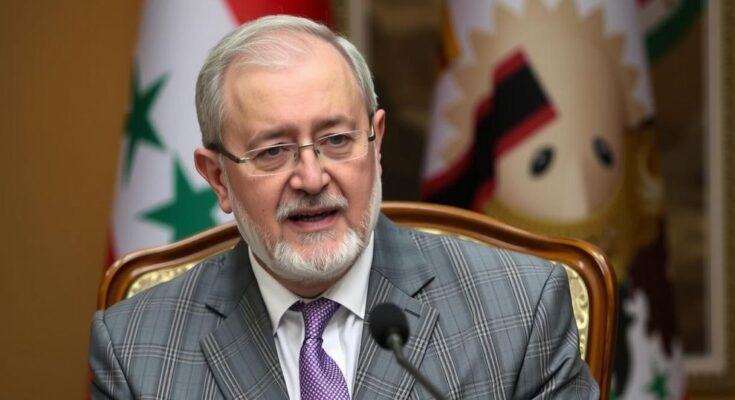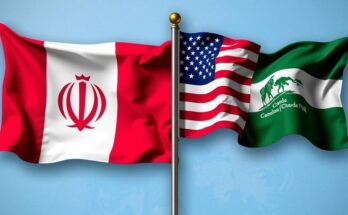Ahmed al-Sharaa, Syria’s new leader, stated that organizing elections could take up to four years while drafting a new constitution might take three years. The former rebel leader emphasized the necessity for a timeline that includes about a year for significant changes to manifest post-elections and constitution drafting, marking a pivotal shift in the country’s governance after the ousting of Assad.
In a recent interview with Saudi state media, Ahmed al-Sharaa, the newly appointed leader of Syria following the ousting of President Bashar al-Assad, stated that the organization of elections could take up to four years. He also indicated that the drafting of a new constitution may require approximately three years. Sharaa emphasized that after these processes, it would take about a year for Syrians to witness significant changes in governance. This marks his first public commentary on the electoral timetable since taking power.
Following the overthrow of Assad on December 8, al-Sharaa leads the Hayat Tahrir al-Sham (HTS) group, which an end to a protracted civil war lasting 13 years. Sharaa’s remarks come at a critical time when the new government aims to present a departure from the group’s roots in Islamist extremism. While Western nations have largely welcomed the end of Assad’s regime, concerns remain over the potential for HTS to either implement strict Islamic rule or pursue democratic reforms.
The Syrian conflict, which has persisted since 2011, has been characterized by widespread violence, political strife, and involvement from various foreign powers. The overthrow of President Bashar al-Assad by the HTS signals a pivotal shift in the country’s governance structure. As the new leadership navigates relationships with other nations, particularly Russia and the United States, the future of Syria depends heavily on its ability to ensure stability, protect minority rights, and possibly embrace a more democratic framework.
In summary, Ahmed al-Sharaa has outlined a substantial timeline for the electoral process and constitutional reforms in Syria, indicating potential stability within a new governmental framework. The international community watches closely as the new leaders aim to balance their origins with the expectations of both their citizens and foreign allies. The future of governance in Syria hangs in the balance as al-Sharaa’s administration seeks to redefine its identity on the global stage.
Original Source: www.france24.com




